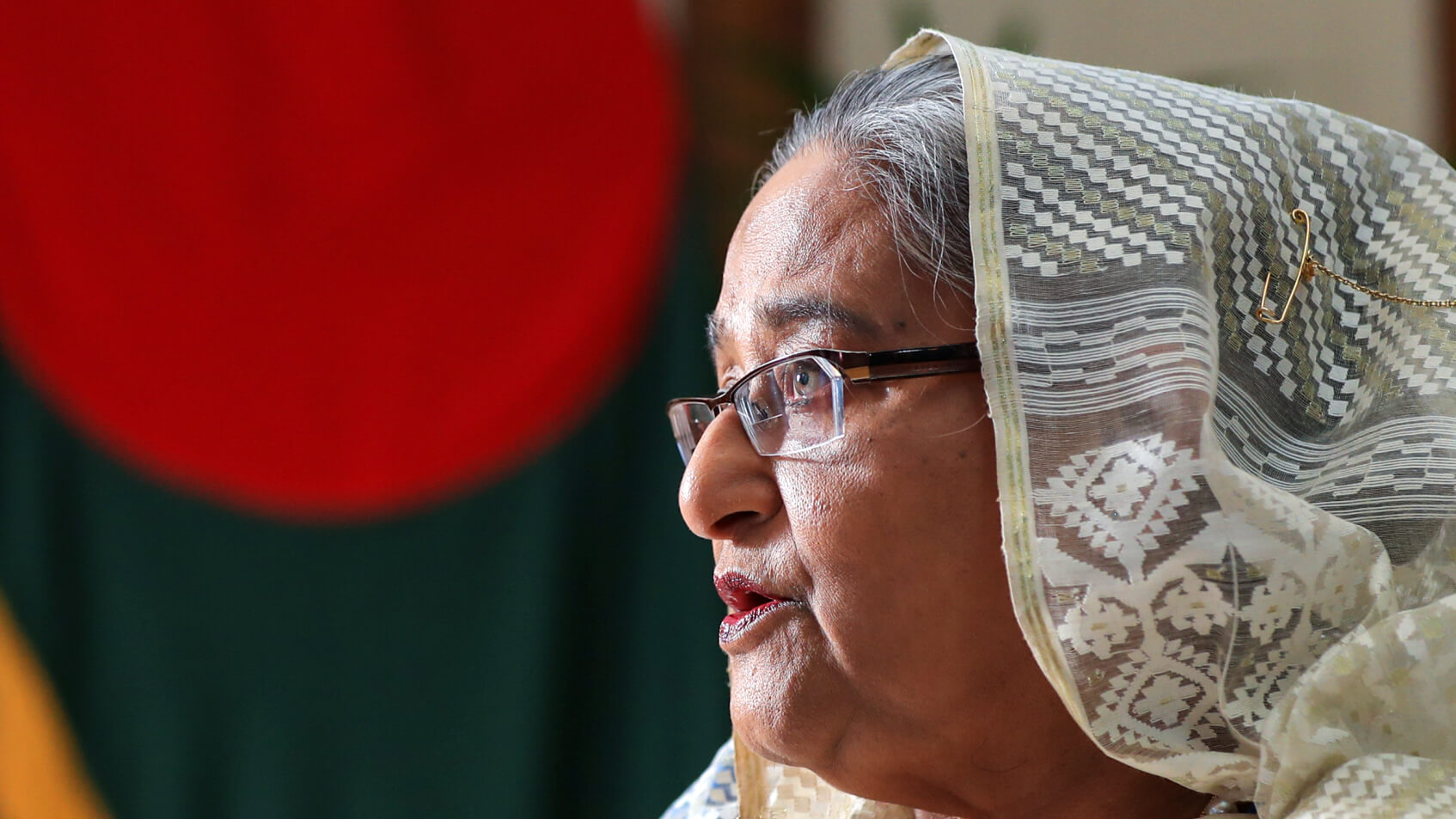In an interview with BBC’s Laura Kunessberg, Bangladeshi Prime Minister Sheikh Hasina said that while it was her “struggle” to protect the democratic system, free and fair elections were only conducted during her Awami League’s leadership.
The journalist spoke of the British High Commissioner to Bangladesh Robert Dickson’s call for free and fair elections during the upcoming 2023 elections in Bangladesh.
To this end, she stressed that the country had seen years of military rule, which also led to the assassination of Sheikh Mujibur Rahman in 1975. Rahman is Hasina’s father and is often referred to as the “Father of the Nation.”
She added, “He was the then president of the country and you know that my entire family, my mother, my three brothers, two sisters in -laws, other family members, and a total of 18 members were brutally murdered.”
Hasina further lamented that since her father’s assassination in 1975, Bangladesh saw around 20 attempts of military coups over 21 years. “There was no democracy, no democratic rights, so I struggled to establish democracy in my country,” she added.
In a veiled dig at opposition party Bangladesh National Party’s founder Ziaur Rahman and Jatiya Party’s founder HM Ershad, the Bangladeshi PM said that the leaders used the army and the administration to “cling to power.”
Kunessbeg addressed the United Nations reports about the disappearances in Bangladesh. In March, the Special Rapporteur published a press release criticising Bangladesh’s attacks on “human rights defenders and relatives of forcibly disappeared persons for activism and cooperation” with UN mechanisms.
Thereafter, the Human Rights Watch reiterated the call for “transparent, independent investigations into enforced disappearances.” The United Nations High Commissioner for Human Rights Michelle Bachelet further recommended that the government set up a “specialised mechanism” to investigate the allegations.
In the BBC interview, Hasina dismissed the allegations and questioned their credibility. She retorted, “How many people disappear in your country as well as other countries? You can judge.”
Pleased to receive Honourable Prime Minister Sheikh Hasina to sign the Book of Condolence for Her Majesty Queen Elizabeth II. Hon PM shared recollections of her and her father’s many meetings with Her Majesty, and The Queen’s wisdom and knowledge. pic.twitter.com/HQPCUORI9r
— Robert C Dickson (@RCDicksonUK) September 13, 2022
Hasina also discussed the importance of being a Commonwealth country and said that it has “great value” and provides opportunities and ideas for “developed countries, developing countries and poor countries, small island countries.” She added that in an “interdependent world,” the Commonwealth members are given an opportunity to work together.
On Queen Elizabeth II, she said that she spoke to her on several occasions, including at the seven commonwealth summits. She recalled, “[The Queen] had a wonderful memory and she used to inquire about me saying where Hasina was if she didn’t see me.” She added that she had a “great value” as the commonwealth leader and was a “very affectionate and motherly personality.”
The interview was held during Hasina’s visit to London, where she participated in the signing of a book of condolence after Queen Elizabeth II’s death. She arrived on Thursday to attend the Queen’s funeral.

